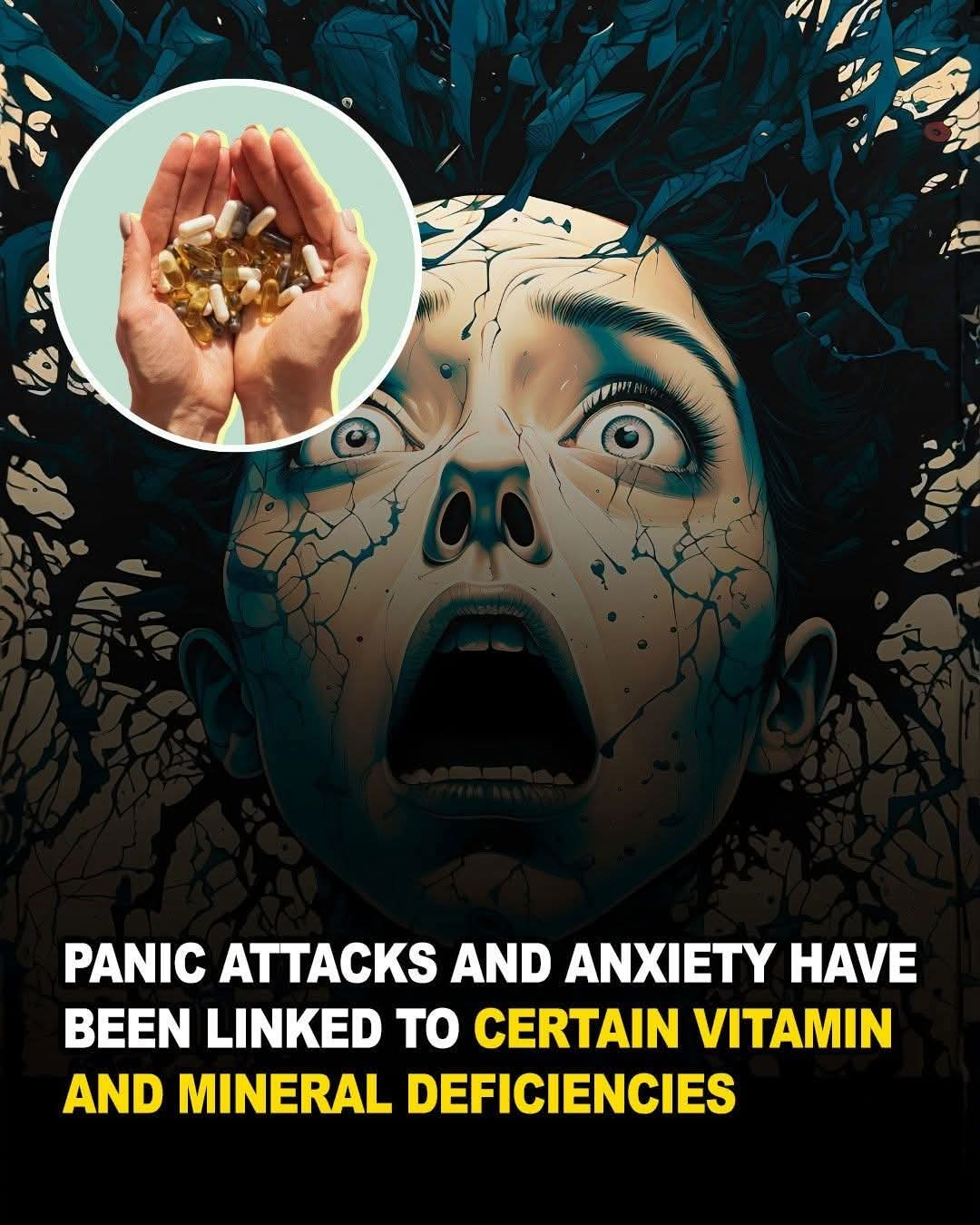The Deficiency of These Vitamins Contributes to Panic Attacks

Panic attacks can strike suddenly, leaving a person feeling overwhelmed, breathless, and fearful. While emotional stress and anxiety are common causes, nutritional deficiencies are often overlooked. Some key vitamins play a critical role in regulating mood, calming the nervous system, and supporting brain health—without them, the risk of panic attacks may increase.
1. Vitamin B Complex (Especially B6 and B12)
The B vitamins are vital for nervous system function. Vitamin B6 helps produce neurotransmitters like serotonin and dopamine, which affect mood and anxiety. B12 supports brain health and prevents mental fatigue. A lack of these can trigger mood swings, irritability, and feelings of panic.
2. Vitamin D
Often called the “sunshine vitamin,” Vitamin D helps regulate mood by supporting serotonin production. Low levels have been linked to depression, anxiety, and even panic disorder. People who spend little time outdoors or live in cloudy regions are at greater risk of deficiency.
3. Magnesium
Although not a vitamin, magnesium is an essential mineral that deserves mention. It has a calming effect on the body, and a deficiency can lead to muscle tension, sleep issues, and panic-like symptoms. It also supports adrenal health, which is crucial during stress.
4. Vitamin C
This powerful antioxidant protects the brain from oxidative stress and supports adrenal function. Deficiency can lead to fatigue, low mood, and heightened stress responses that mimic or trigger panic attacks.
5. Folate (Vitamin B9)
Folate works closely with B12 to support nervous system function. A deficiency can affect brain chemistry, leading to feelings of hopelessness, anxiety, and panic.
6. Iron
While technically a mineral, iron deficiency often causes fatigue and brain fog, which can increase anxiety levels and sensitivity to stress, triggering panic-like symptoms in some individuals.
FAQs
Can vitamin deficiencies alone cause panic attacks?
Not usually—but they can significantly contribute to the frequency or intensity of panic symptoms, especially in those already prone to anxiety.
How can I know if I’m deficient in these vitamins?
Blood tests can confirm deficiencies. Symptoms like constant fatigue, irritability, poor concentration, and low mood may also be signs.
What foods can help prevent these deficiencies?
Leafy greens, eggs, fish, fortified cereals, nuts, seeds, citrus fruits, and whole grains are rich in essential vitamins for mental health.
Is it safe to take supplements for anxiety and panic attacks?
While many supplements are helpful, it’s best to consult a doctor before starting them to ensure they’re right for your needs.
Final Thought
If you’re struggling with panic attacks, don’t overlook the role your diet might be playing. Balanced nutrition supports both physical and mental health, and sometimes a few simple changes can make a powerful difference.






